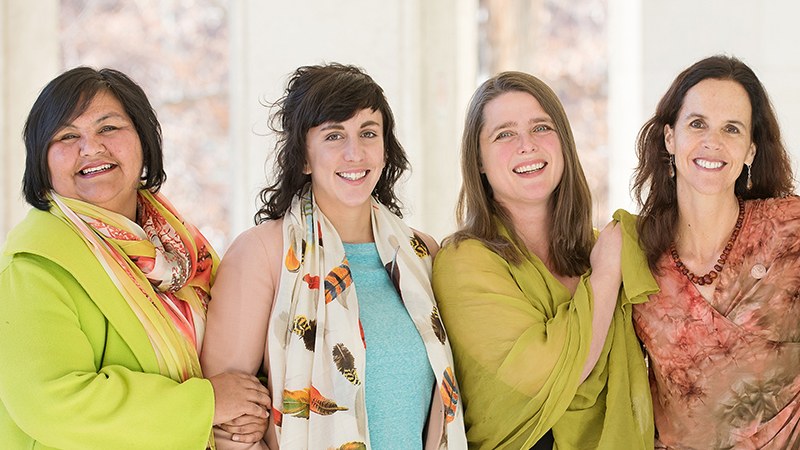A New Vision for Community-Led Change
Leer en español
The Colorado Trust Community Partners (l. to r.): Theresa Trujillo, Krista Martinez, Tera Wick and Arden Trewartha. Photo by Ellen Jaskol
By Kristin Jones
The means by which societal inequities degrade people’s health are complicated. But the sum of the injuries is measurable in the simplest way: years of life.
Black Coloradans are nearly three times as likely to be unemployed as white Coloradans, and their children can expect to die four years sooner.
All of the income growth in Colorado since the recession has gone to the top 1 percent of earners, while across the country, the difference in the life spans of the rich and the poor are widening.
Colorado counties including Huerfano, Otero and Rio Grande lose 10,000 years apiece to premature death (defined as dying before age 75)—a rate that’s more than twice as high as in healthier Douglas, Pitkin and Summit counties.
It was within this context that The Colorado Trust took a dramatic shift in its direction in 2015, going directly to the communities most affected by these ills to ask questions rather than provide answers.
“What we’ve been doing to try to address these inequities hasn’t been working,” says Gwyn Barley, PhD, The Trust’s director of community partnerships & grants. “We needed to imagine a different way.”
Instead of deciding the issues of importance to Coloradans and then giving out funds to nonprofits to execute its vision, The Trust is giving decision-making authority directly to residents in communities across the state. This Community Partnerships strategy launched in 2015 in nearly a dozen communities in Colorado, most of them rural.
With guidance from The Trust’s community partners—staff members who were hired to live and work in regions across the state—people in these places came together to talk with their neighbors about what they love about where they live, what’s tough about it and what they would like to change. This strategy sees all people as the experts of their own lives and communities.
It was a year of building relationships, working to understand the complexity of the challenges that communities face, convening a broad table of residents and asking them to determine their own priorities, says Barley.
In 2016, many of these communities will be actively working to build their visions for a better place—each in their own way.